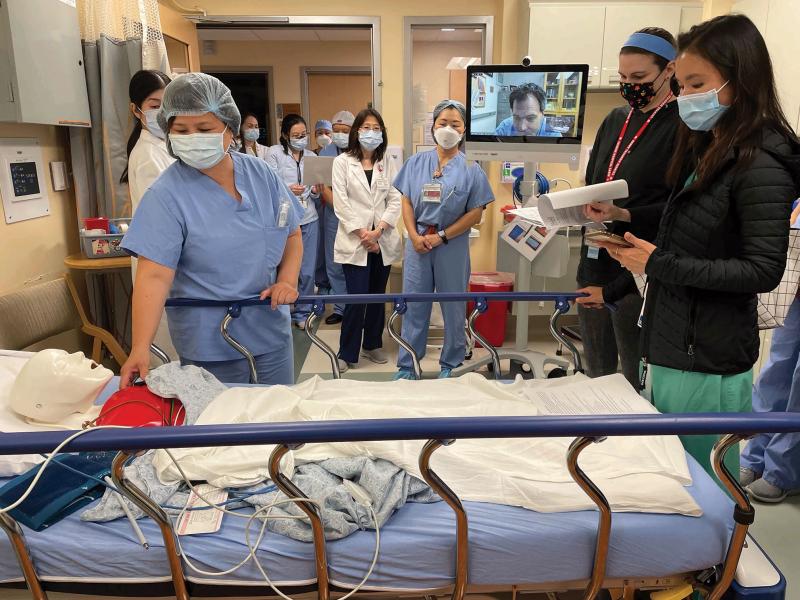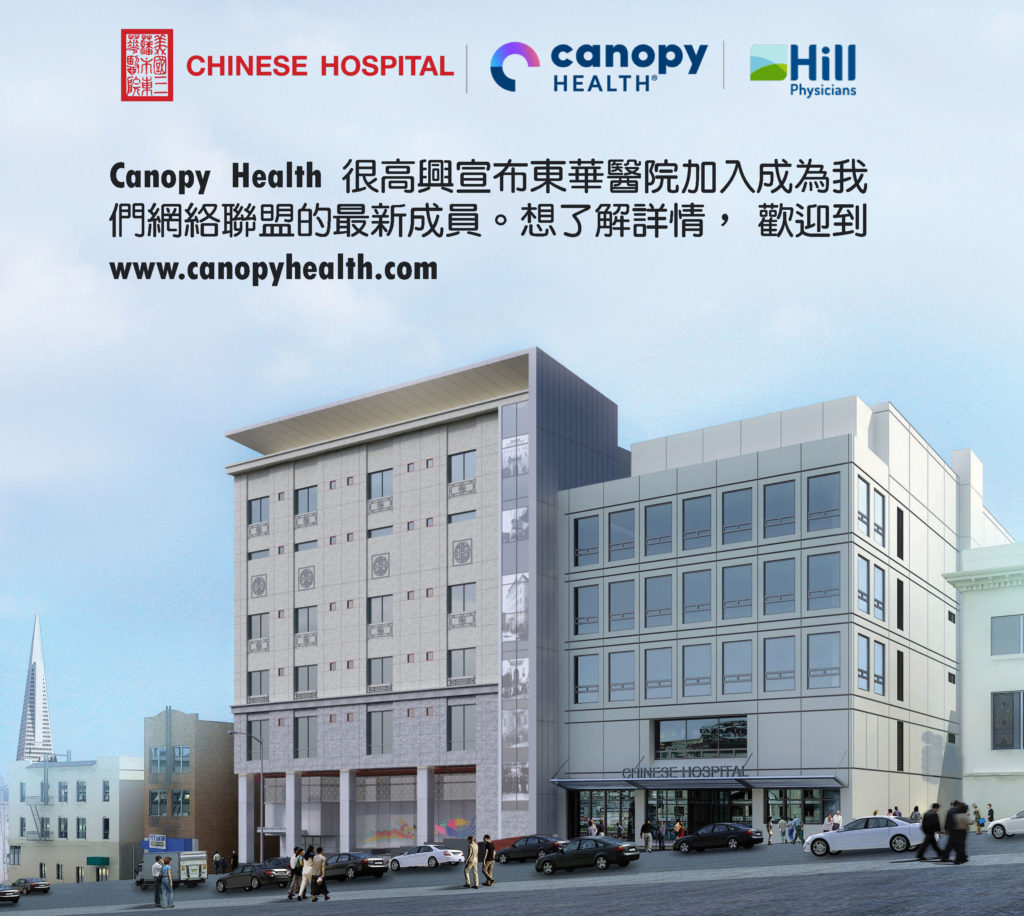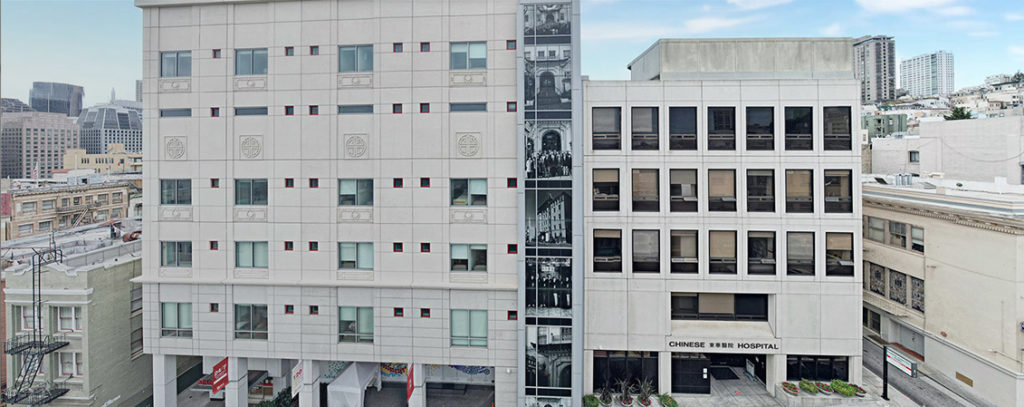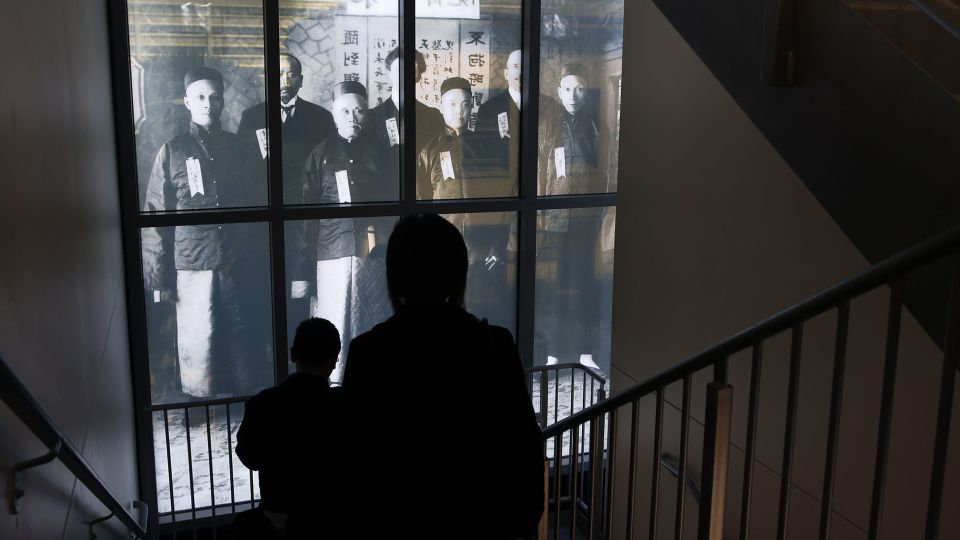By Harmeet Kaur, CNN
Published 7:20 AM EDT, Mon April 12, 2021
When diseases have historically spread in the US, so too has discrimination and hate against Asian Americans.
Asian Americans have been verbally harassed, spat on and attacked throughout the coronavirus pandemic. More than a century ago, something similar happened.
During disease outbreaks in the 19th and 20th centuries, Chinese immigrants in San Francisco were depicted as harbingers of infection, placed under racist quarantines and denied access to health care.
Just as Asian Americans have protested racism against them today, Chinese Americans in San Francisco at the time fought back, building their own hospital to provide the critical services that their local government had denied them.
Their response is one of numerous historical examples of Asian American resistance in the face of anti-Asian racism — and its legacy lives on today.
Chinese immigrants began making their way to American shores in the mid-1800s, among thousands of people hoping to improve their economic fortunes during the California Gold Rush.
Eventually, they would come to be exploited for cheap labor, working in industries such as farming, restaurants, laundry and most notably, railroad construction. And when an economic panic swept the US in the 1870s, White citizens scapegoated Chinese immigrants for taking away jobs.
Anti-Chinese sentiment continued to rise throughout the late 1800s, laying the groundwork for discriminatory policies such as the Chinese Exclusion Act of 1882 and resulting in White mobs violently driving out Chinese communities across the West.
At the same time, the US was battling disease outbreaks including the Bubonic Plague and small pox, said Laureen Hom, an assistant professor of political science at California State Polytechnic University who wrote a case study on Chinese Hospital when she was a public health researcher in 2013.
Chinese immigrants in San Francisco were forced to live in poorer, overcrowded neighborhoods under unsanitary conditions, where such diseases were more prevalent, Hom said. On top of that, the prevailing scientific theory at the time held that diseases were caused by breathing “bad air.”
The result: Chinese communities were blamed as sources of the disease.
“They were neglected by mainstream institutions and that fed into how they were blamed for these diseases,” Hom said.
Instead of working to improve the poor conditions of Chinatown, officials in San Francisco subject the neighborhood and its residents to countless inspections and responded with punitive measures against Chinese immigrants, Hom said.
Public health laws allowed police to harass Chinese immigrants for living in crowded conditions and shut down Chinese businesses because they were deemed as sources of illnesses, according to Hom.
Restrictive quarantines prevented Chinese people from leaving Chinatown while White people could pass through without issue, wrote Grace Chen, in an October 2020 article published in the Yale Undergraduate Research Journal.
The Chinese community also faced challenges in accessing health care, Hom said.
There were few services in or around their own neighborhood, and traveling to hospitals elsewhere meant potentially risking harassment and violence. They often faced discrimination in the hospitals that agreed to admit them, such as higher taxes and fees than White residents. There were cultural barriers, too: hospital staff couldn’t speak Chinese and many immigrants were skeptical of Western medicine.
“Chinatowns were severely neglected by mainstream institutions,” said Hom. “And so the communities themselves took care of each other.”
So they took matters into their own hands
The Chinese Six Companies, a group of merchant-led community organizations formed to assist Chinese immigrants with life in the US, eventually came together to provide health care for Chinatown residents.
Despite resistance from local officials and lobbying groups, the Chinese Six Companies finally opened the Tung Wah Dispensary in Chinatown around 1900.
Staffed by both Western-trained physicians and Chinese herbalists, the dispensary served as an early model of community-based health care. It also provided free or low cost services to patients who couldn’t afford it.
Then an earthquake hit San Francisco in 1906, and resulting fires devastated much of Chinatown, including the Tung Wah Dispensary. Though it was quickly rebuilt, the dispensary soon began to outgrow its capacity and the community started making plans for a modern hospital, Hom said.
The Chinese Six Companies and several other community organizations banded together in the early 1920’s and raised funds for a new facility, according to the Chinese Hospital website.
On April 18, 1925, Chinese Hospital opened its doors to the public, the first and only institution in the nation of its kind. It was a bold move, given that anti-Chinese sentiment was still high at the time.
“It’s part of this story about Chinatown as a neighborhood and how it resisted the community leaders at the time,” Hom said. “Chinese Americans pulled together resources and were able to establish this despite the exclusion and racism that they were facing.”
Over the decades, Chinese Hospital continued to expand its facilities and services, creating its own health insurance plan and opening new community clinics to accommodate Chinese Americans that had moved out of Chinatown to other neighborhoods. It also established a clinic that integrates Chinese and Western medicine.
Nearly 100 years later, Chinese Hospital continues to provide community-oriented, culturally sensitive care to Bay Area residents, with numerous locations and clinics across the region.
And it played a crucial role in protecting San Francisco’s Chinatown from the worst of the Covid-19 pandemic, says Chinese Hospital CEO Dr. Jian Zhang.
Leaders at the hospital saw early on how Covid-19 had the potential to hit their community especially hard, Zhang said. The virus had been spreading rapidly in Wuhan, China. Chinese New Year was around the corner. And at the time, there were direct flights running from Wuhan to San Francisco.
“Covid could have and should have spread like wildfire,” said Dr. Jessica Li, the medical director of Chinese Hospital’s emergency department. “But it didn’t.
That’s because the hospital took a preventative approach. They created a bilingual hotline to answer questions about Covid-19 in both English and Chinese. They went directly into communities to educate them about how to properly wash their hands and clean common spaces. When they did encounter their first cases of the virus, they were diligent about contact tracing and providing areas where exposed residents could quarantine.
As a result, the toll of the virus on the community wasn’t as bad as it could have been.
Zhang says this past year has proved even further how significant an institution Chinese Hospital is.
“For Chinese hospital to be here to provide culturally and linguistically competent care, it’s just really important to the community,” she said.
For Zhang, Chinese Hospital isn’t just a hospital.
It’s a reminder of how the Chinese American community in San Francisco has come together to help each other, time and again.









